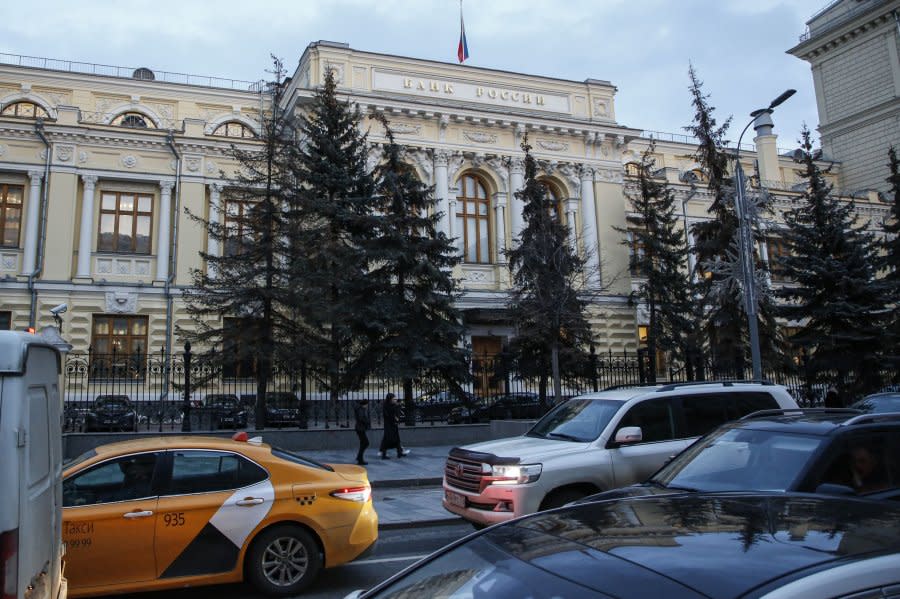Russian ruble slides to 16-month low against U.S. dollar

Aug. 14 (UPI) -- The Russian ruble fell to a 16-month low against the U.S. dollar Monday as the effects of a continued deterioration of its balance of trade position and the mounting cost of its war on Ukraine took their toll on the currency.
The currency was trading at 102.27 to the dollar shortly after the opening of trade in New York, a depreciation of about 30% since the beginning of 2023, with Russia's central bank and the Kremlin blaming each other for the debacle.
The Bank of Russia pointed to an 85% contraction of the country's current account surplus -- the difference between hard-currency inflows from exports, investment and capital against outflows to pay for imports and transfers of capital abroad.
Exports have been badly hit by Western sanctions imposed following Russia's February 2022 invasion of Ukraine and EU efforts to control both the price and volume of imports of hard-currency-earning Russian oil and gas by utilizing alternate sources.
President Vladimir Putin's chief economic advisor blamed the ruble's plummeting value on easy monetary policy by the bank which he said had "all the necessary tools to normalize the situation in the near future."
"A weak ruble complicates the restructuring of the economy and negatively affects the real incomes of the population. A strong ruble is In the interests of the Russian economy," said Maxim Oreshkin.
Double-digit interest rates -- normally a boon for a currency -- and a freeze on the purchasing of foreign currency for the remainder of 2023 imposed by the Bank of Russia on Thursday appeared to have had little effect.
However, analysts quoted by the BBC said the fall in the ruble had to be seen in the context of a strengthening U.S. dollar which was "gaining ground against emerging currencies across the board".
The higher interest rates required to prevent the strong U.S. economy from overheating was in contrast to the actions of central banks of emerging markets which were starting to cut rates and fueling dollar demand, said AJ Bell investment director Russ Mould.
"Higher returns on cash in dollars and lower ones in other currencies can increase the relative attractiveness of holding greenbacks, or assets denominated in them," he said.
Mould added that Russia's economy had also been damaged by being denied access to the Swift international payment system widely by financial institutions around the world.

